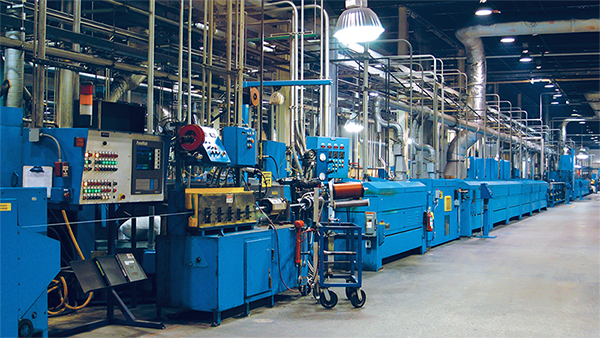Is Liveline right for your plant?
Our approach to factory automation is most beneficial in industrial settings where there is at least a minimal level of complexity. Often this means one or more of the following:
Multiple processing stages or pieces of equipment;
Multiple types of process physics (such as forming, heating, reactions, etc.);
Difficult tradeoffs with multiple constraints; and/or
Some degree of “art” required by experienced operators to keep the line running.
Usually, there is not a large benefit to automating a single piece of equipment with Liveline when more traditional technologies may be available.
Applicable process types
Liveline’s AI-based factory automation is currently targeted at process industries. This means continuous-flow or batch manufacturing, not discrete manufacturing or assembly. For example:
Polymer extrusion |
Polymer calendarization |
Aluminum extrusion |
Wire & cable |
Food and beverage |
Thin film |
Fiber optics |
Paint and coatings |
Membranes |
Biopharmaceuticals |
Brewing |
Float glass |
Textiles |
Paper |
Steel |
Refining |

A polymer extrusion line controlled by Liveline Technologies
Benefits
Why is factory automation (also known as Advanced Process Control) so useful in process industries? Because it can do several things that simpler controls like PIDs cannot. For example:
APC is designed to control multiple pieces of equipment simultaneously, and jointly optimize their settings to ensure desired outcomes from the process. For this reason it is sometimes referred to as a “supervisory system”.
APC can handle various constraints, such as equipment safety limits, and provide optimal outcomes while avoiding undesirable or infeasible conditions.
APC typically uses some sort of process model to predict the future based on current states, and these predictions are considered when optimizing equipment settings. See the note on Model Predictive Control.
Liveline’s AI-based approach to APC is ideally suited for plants that want:
less scrap and waste
less energy usage and a reduced environmental footprint
higher productivity
better product quality
to supplement technical talent that can be difficult to find
Contact us today to discuss your needs.